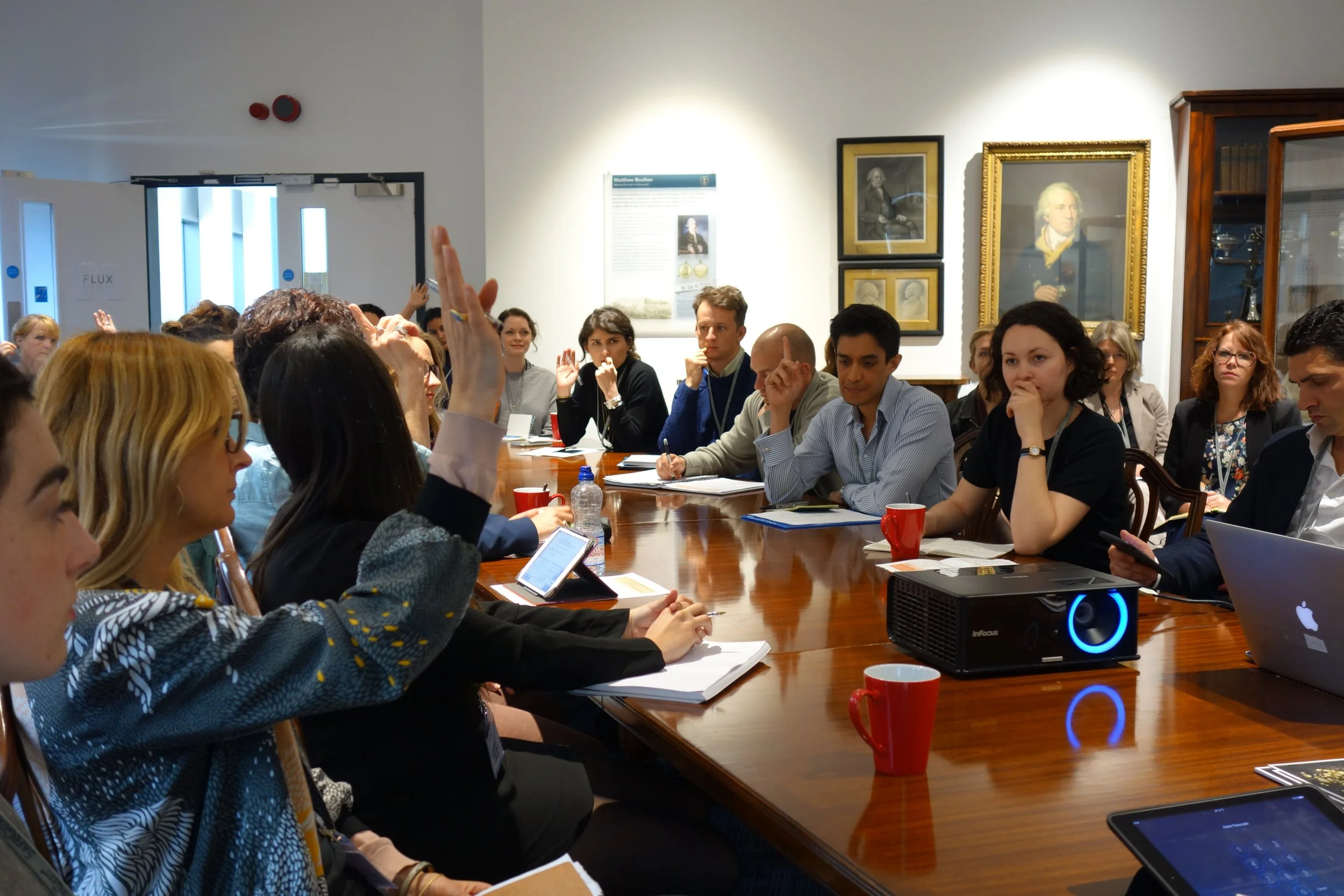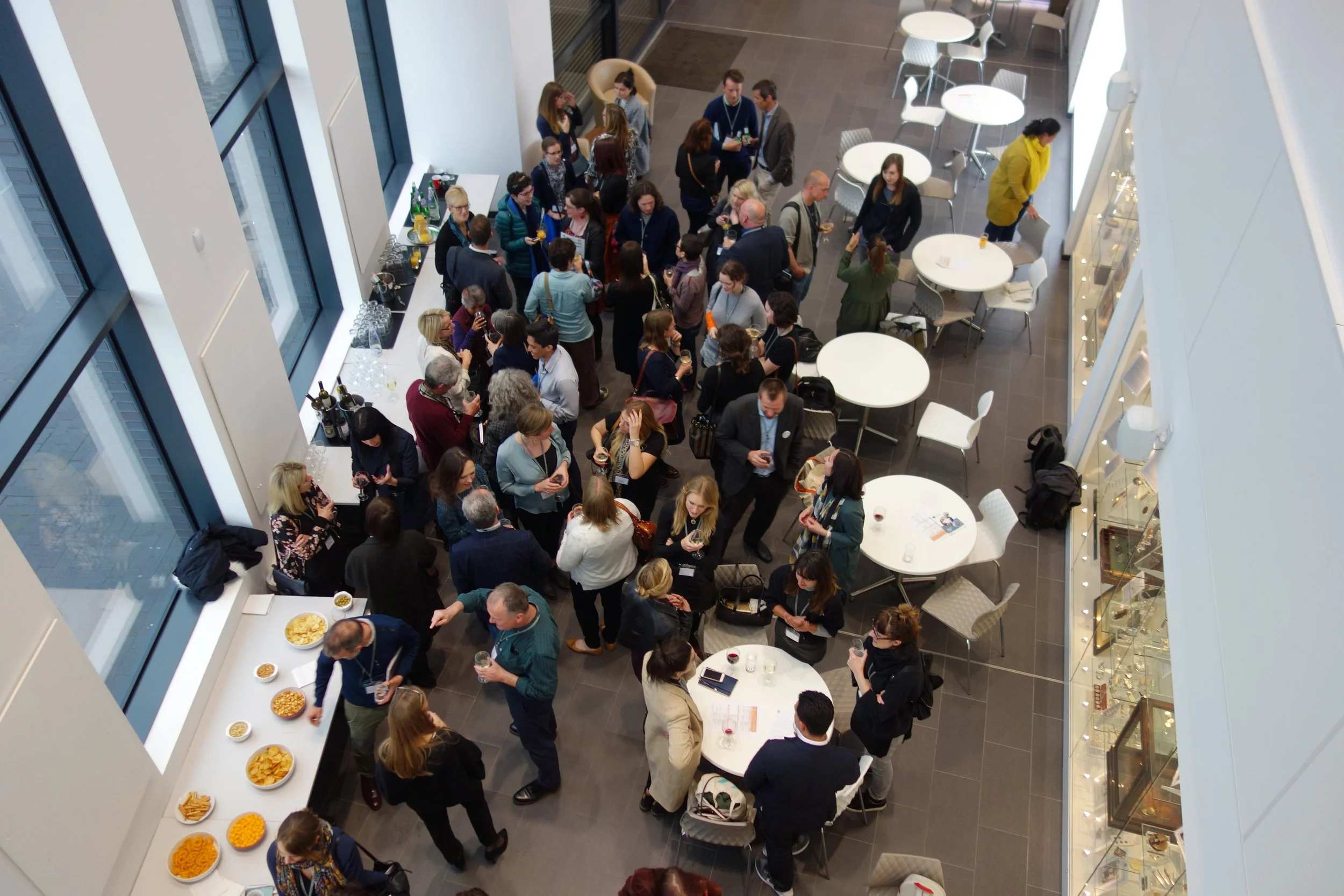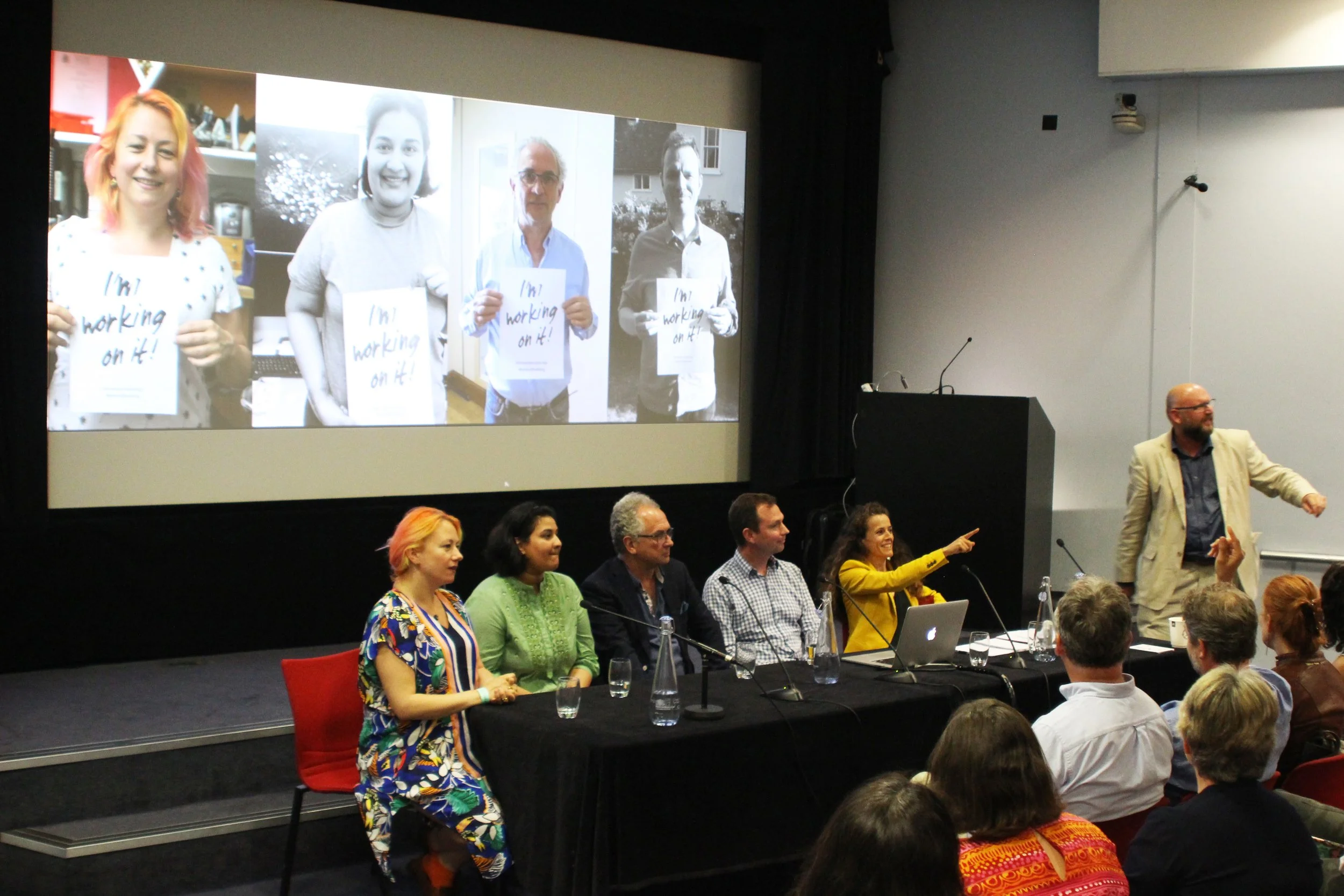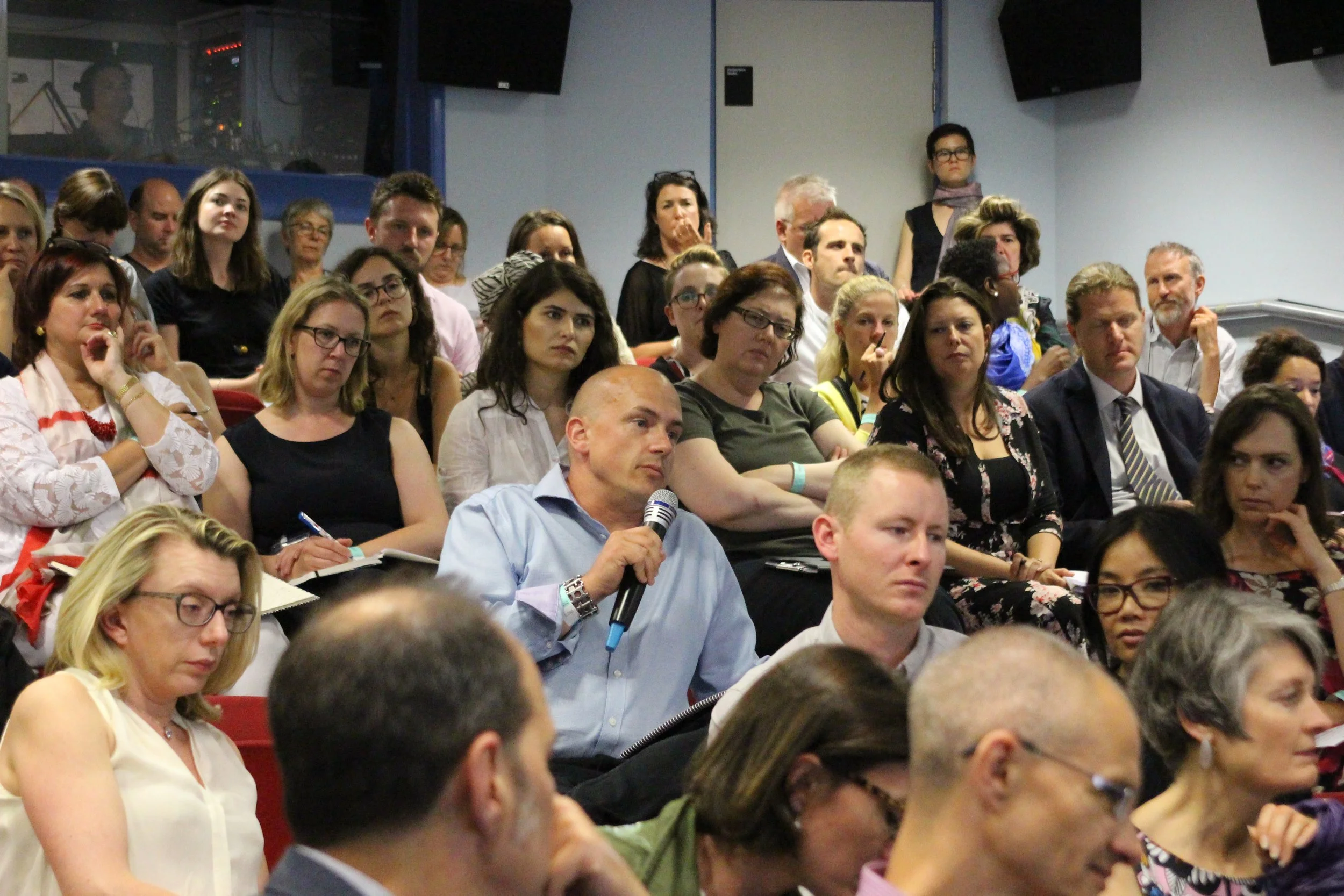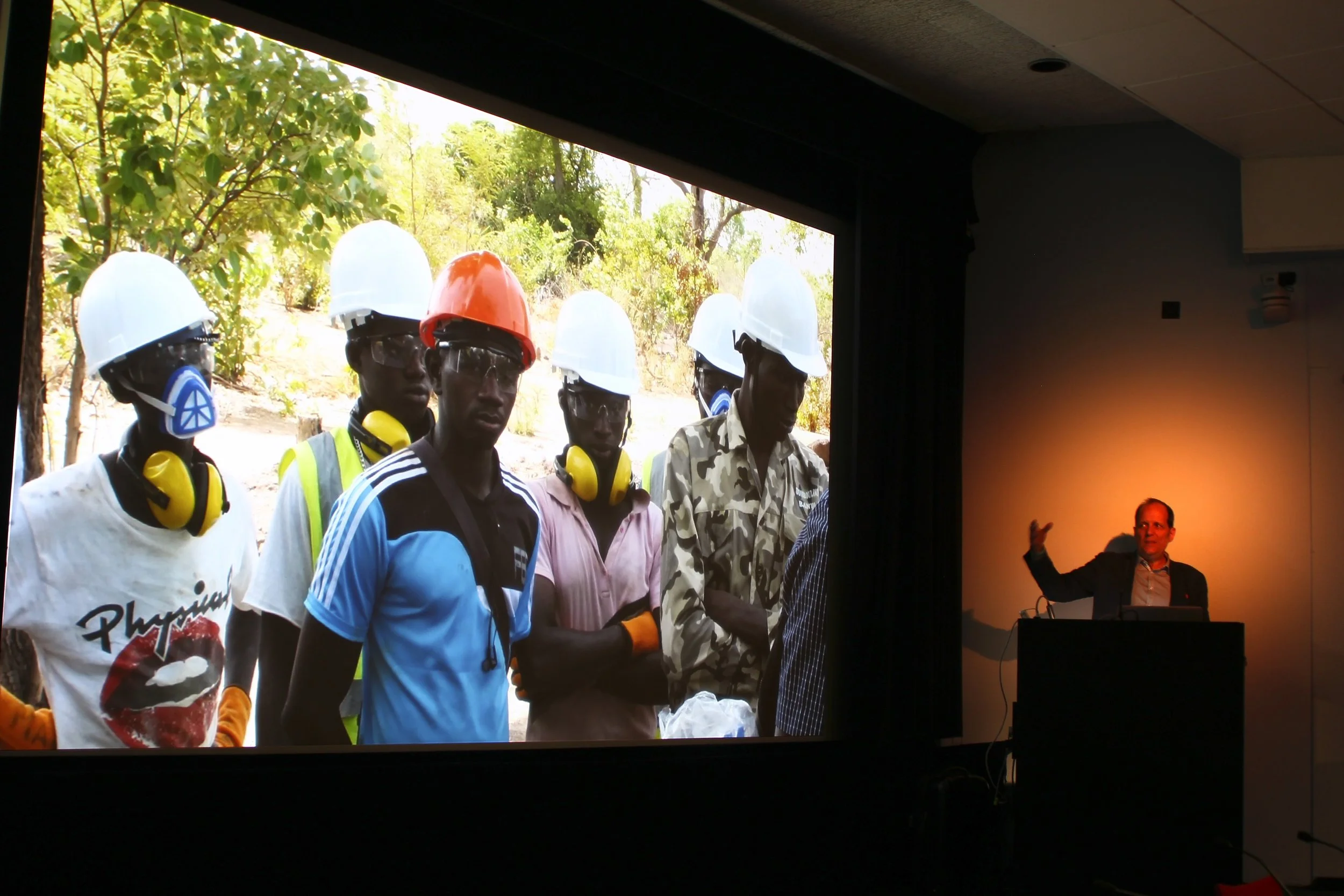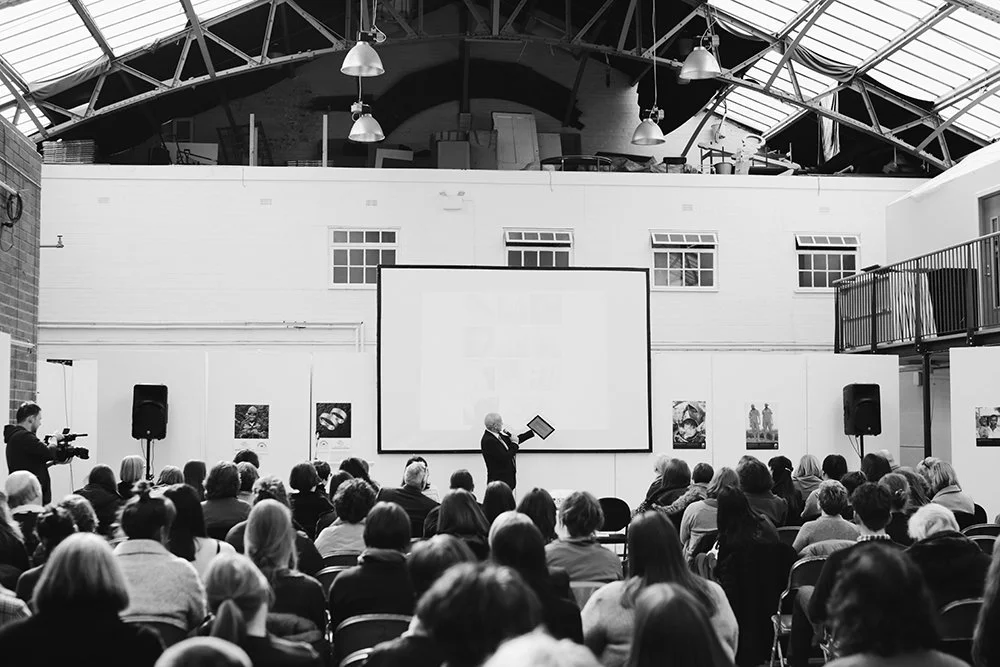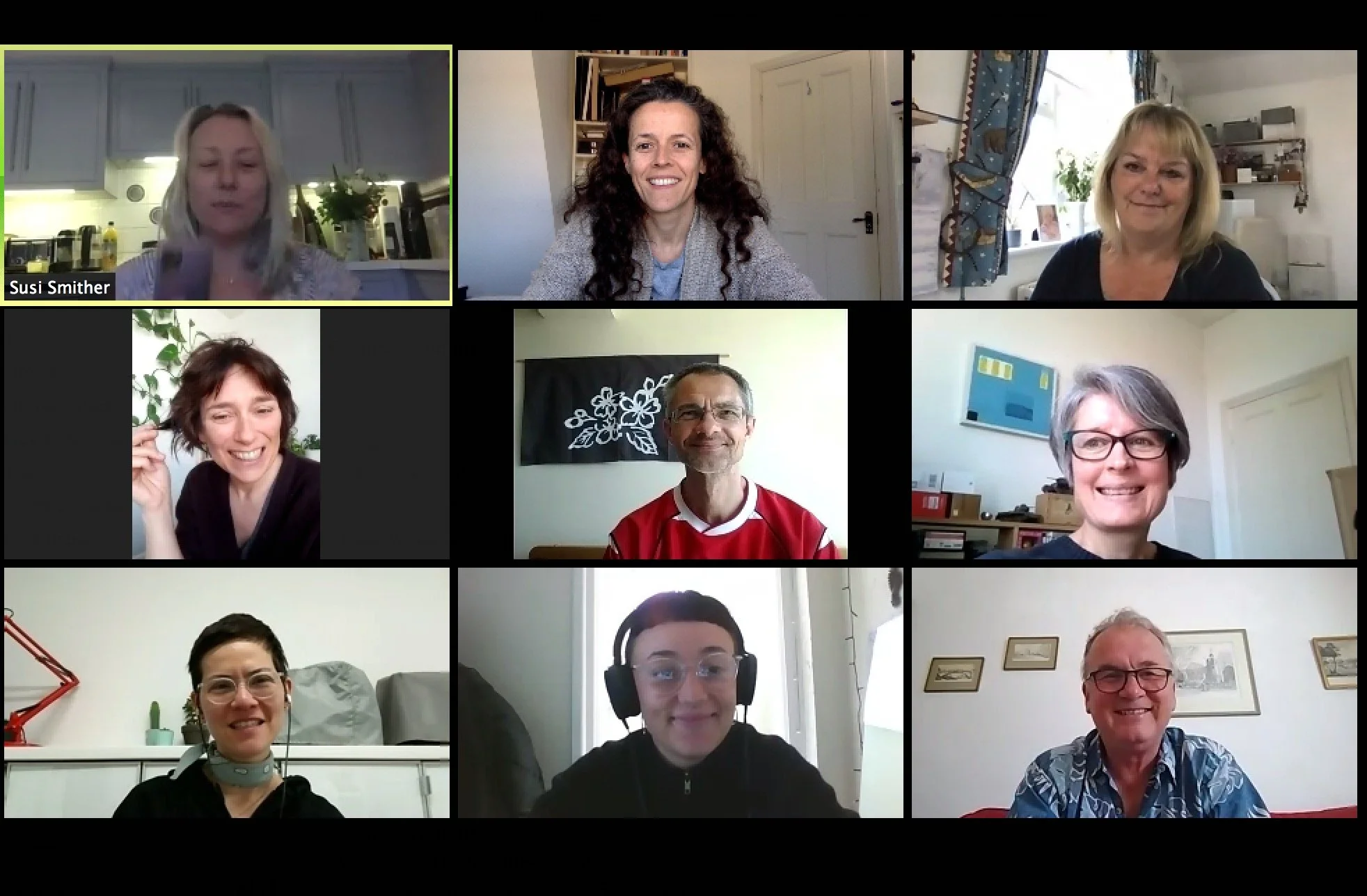Fair Luxury: A legacy of pioneering conferences
11am, Friday 9th May 2014. The iconic Goldsmiths’ Centre buzzes quietly with end-of-week activity, raindrops rapping gently on the glass panels of its contemporary foyer. One jewellery professional after another, a hired meeting space fills slowly until 16 people are seated.
Six months prior, David Crump – then Commercial Manager of designing, casting and manufacturing house VIPA Designs – had met Lina Villa, Chief Executive of the Alliance for Responsible Mining (ARM) on a trip to an artisanal mining district in Peru. Thanks to funding by VIPA, David had found himself some 6,000 miles away from home by personal invite from Lina, along with a handful of other jewellery industry professionals from around the world. The group trip was an initiative by ARM to catalyse greater awareness, support and action surrounding responsible artisanal and small-scale (ASM) gold. Also there to learn was independent jewellery industry consultant Christina Miller, who had founded the still hugely successful non-governmental organisation (NGO) Ethical Metalsmiths in Cincinnati a few years beforehand. David told her about the LinkedIn group he’d initiated for the small fraction of jewellery designers using third party certified metals at a time when only 16% of the UK jewellery industry were aware of Fairtrade Gold. This virtual gathering, he explained, gave rise to novel discussions about supply chains, certification schemes and manufacturing practises, bonding British jewellers by their common vision of a fairer and more sustainable industry. Identifying the early rumbles of a potential seismic wave, Lina and Christina gave David a gentle nudge to gather these people for an in-person chat. Thanks to some VIPA Designs funding, it wasn’t long before a meeting space was booked at the Goldsmiths’ Centre.
The air vibrated with optimism that late-spring morning, as 16 almost-strangers congregated for the first time to light a fire beneath their ongoing threads of conversation. Straying regularly from their agenda to make way for the organic flow of discussion, the group explored the complex strengths and weaknesses of DDI (Diamond Development Initiative), a conflict prevention scheme focussed on formalising and improving conditions in the artisanal diamond mining sector; the work of the World Jewellery Confederation (CIBJO) and then-Jewellery Ethics Committee, and Fairtrade Gold’s upcoming I-Do Campaign to make traceable wedding bands the norm. They lamented their shared understanding of lacking consumer awareness, industry perceptiveness, education and the absence of the resources needed to operate in the ways they wanted to. (Two words: Fairtrade chain!)
But in a rich tapestry of overlaps and niches, the group also displayed a broad array of knowledge, interests and connection. There was Kathy Chappell, figurehead of Fair Trade Gemstones who had already been championing traceable and fair-traded gemstones for years; jeweller, activist and Fairtrade campaigner Greg Valerio (now MBE!); Stuart Pool, founder of ethical gemstone supplier and social enterprise Nineteen48; and ethical jewellers Anna Loucah, Amanda Li Hope, April Doubleday, Samantha Rose and Ute Decker, to namedrop just a few. United, they were a force to be reckoned with.
Recognising their potential as a collective, the group chalked out plans to team up with Fashion Revolution, create educational content for jewellery students positioning ethical jewellery as something to aspire to, a central reserve of shared resources, and a formalised campaign group. The next meeting was pencilled in for six weeks later, and the rest is history.
FLUX: Fair Luxury
April 2016. The world has bid a sudden farewell to Prince, Barack Obama is just months away from handing his presidency over to Donald Trump, and Britain is on the precipice of voting to leave the European Union.
Meanwhile, the founding members of FLUX – a certain campaign collective established some 18 months beforehand - are busy in the final stages of organising the UK’s first ever responsible jewellery conference. The seminal event, named Fair Luxury, was a day-long convention hosted by The Goldsmiths’ Centre, at this point a familiar stomping ground for FLUX. The first of its kind, it captured the attention of jewellery industry professionals at a moment when the Kimberley Process was being abandoned by a number of key NGOs yet 36% of millennials were reporting that responsible diamond sourcing was no longer an area for compromise when purchasing their engagement rings and wedding bands. We needed to talk about the jewellery industry, and our inaugural event sold all of its tickets within two weeks.
Fair Luxury 2016 brought together pioneering figures from both the jewellery and fashion worlds, inviting industry leaders to question the ways we approached provenance and sustainability, examining the journeys between original source and end consumer. A packed day of diverse keynote speakers and interactive workshop sessions began with Lina Villa of Colombia’s aforementioned ARM, responsible for the seminal Fairmined initiative. At the time, Colombia was six months away from holding its Colombian peace agreement referendum to ratify the final consensus on the termination of conflict between the Colombian government and the FARC guerrillas, a rebel group funded largely by gold mining. Lina shared with an attentive audience her experiences of implementing change through increased standards in mining safety and the positive effect such essential work had already on the lives of the millions of artisanal miners across South America.
Next followed Orsola de Castro – co-founder of the global phenomenon that is Fashion Revolution. Conceived in the wake of the Rana Plaza disaster in which 1,130 Bangladeshi garment factory workers lost their lives, Orsola shared her inspirational journey of just what is involved in flying the flag for sustainability amidst todays seemingly insatiable desire for fast fashion.
Jack Cunningham, Group Sustainability Manager at Gemfields – a world-leading responsible miner and marketer of coloured gemstones - rounded off the keynote speakers with a frank and honest discussion of the challenges faced in gemstone mining and marketing, when acting as the model for ethical policy within an industry that has an inherently chequered history of environmental practice.
Woven between these insightful talks were interactive workshop sessions held by such industry specialists as Greg Valerio MBE, The Company of Master Jewellers’ Chief Executive Willie Hamilton, and responsible sourcing specialist Estelle Levin-Nally.
Here feels like the perfect opportunity to thank Estelle for funding critical admin work by Jane Barnett, Office Manager of her international mineral consultancy Levin Sources – work that catalysed Fair Luxury’s evolution and activities immeasurably. It was to this very conference that Jane brought along researchers Olivia and Anna to help out on the night. Subsequently, Anna began offering admin support to Fair Luxury alongside Jane, before eventually going on to become Head of Responsible Business at the Fairtrade Foundation. Invaluable connections!
“The UK really is leading the way in ethical practise within our industry,” Lina remarked as she cast her gaze over a room full of change-hungry industry professionals. “It is inspiring to come here and see the enthusiasm you have to make real change.”
“The enthusiasm and sense of optimism at the event was palpable,” later wrote Elizabeth Shaw, conference delegate and speaker. “The hard work and ambitions of the FLUX team saw their idea for the conference become a reality. I hope this will be just the start of our conversation.”
FLUX: Fair Luxury 2017
As it happens, success is addictive. Recognising an unmistakeable desire for more conversations about responsible sourcing and manufacturing – and fuelled by the positive feedback we’d received on our inaugural conference in 2016 – it wasn’t long before plans were underway for a second event.
This time hosted by Birmingham’s Assay Office, Fair Luxury 2017 was a two-day event further encouraging a dynamic platform for debate, providing an atmosphere of collaboration between open-minded individuals who wished to be part of a trailblazing movement.
Delegates represented all facets of the jewellery industry and we were fortunate to hear from a wide range of presenters on a diverse range of topics, including child labour, the environmental impact of mining, consumer engagement and life as an ethical jeweller. We listened to the views of miners, manufacturers, designer-makers and retailers. Big brands like Pandora and DeBeers spoke alongside SMEs and small independent business owners like Arabel Lebrusan, Anna Loucah and Harriet Kelsall. We learned more about other organisations like Jewelry Industry Summit, Incorporation of Goldsmiths and Ethical Metalsmiths, recognising the potential to collaborate to become greater than the sum of our parts. This broad and eclectic mix of backgrounds was ideal for fuelling intense discussion, but also for offering one another a better perspective of the issues faced by companies both large and small.
Attendees were invited to engage in Q&A, participate in workshops focussing on ‘mine-to-market’ topics, and swap ideas, views, concerns and business cards. The energy in the building was palpable, especially during the time allocated ‘after hours’ specifically for networking (and a glass of wine!)
Also covered were a viewing of Fair Trade Gold Mining in Colombia, a short film by April Doubleday, and the crowning of the winner of the Ingle & Rhode 2017 Fairtrade Gold Design Award.
By the end of Day 2 we were satisfied and exhausted in equal measure, very proud to have created a tangible buzz and immense enthusiasm within our audience. Our speakers had informed, educated, enlightened and inspired, and many useful connections had been made.
The success of the event was in no small part due to the outstanding efforts of the Assay Office team. A special mention is owed to Marion Wilson and Kelly Fisher for their incredible support over the two days, as well as jewellery journalist Rachael Taylor and responsible sourcing specialist Estelle Levin-Nally for their skilful moderation of presentations and discussions.
Fair Luxury at RCA
Maintaining the momentum of our previous two annual conferences, it was an honour to collaborate with London’s prestigious Royal College of Art for our third convention in 2018. It’s important to mention that Dr. Peter Oakley, Reader in Material Culture at the RCA, not only did a terrific job of convening the sold-out conference, but was key to its existence - sourcing the funding which enabled the event to run in the first place. That very same funding has since facilitated a variety of other Fair Luxury endeavours. Thank you, Peter.
Unlike the last two conferences, which had brought together voices from both the jewellery and fashion worlds, this one centred exclusively on ethical sourcing within the jewellery industry. We’d done it!
We heard from ARM representatives all the way from Colombia and France about the future plans for the Fairmined initiative; Director of Edinburgh’s Incorporation of Goldsmiths Mary Michel about the new Ethical Making Resource; and Founder and CEO of international consultancy Levin Sources, Estelle Levin-Nally, about business developments and imminent plans.
These influential names were joined by jewellers, gemstone dealers and academic experts on artisanal and small-scale mining in the developing world. Professor Gavin Hilson of the University of Surrey and DDI spoke to us about barriers to formalizing small-scale mining in Sub-Saharan Africa and Dax Lovegrove from Swarovski explored the roles of women in the jewellery supply chain, whilst Susi Smither (The Rock Hound), Naqiyah Sultan (Kashka), Tim Ingle (Ingle & Rhode), Peter Crump (VIPA Designs) and Arabel Lebrusan (Lebrusan Studio) formed an Ethical Makers’ Panel to discuss the ideals and practicalities of being a licensee jeweller.
“Over the past decade, the UK has been one of the leaders in advocating ethical sourcing in the jewellery trade. We owe a great deal to the committed campaigners who have helped get us so far,” he commented. “Fair Luxury at the RCA is an opportunity to celebrate those achievements, whilst acknowledging the challenges that still lie ahead and opportunities for a more ethical and sustainable future.”
The Making Impact Symposium
April 2019, almost five years since that fruitful gathering at London’s Goldsmiths’ Centre. As members of the jewellery industry from the UK and beyond file in to Edinburgh University’s impressive West Court Lecture Theatre, the Fair Luxury team vibrate with pride and anticipation ahead of another sold-out annual conference. In collaboration with Edinburgh’s Incorporation of Goldsmiths (IoG), Making Impact welcomed a broad and eager audience of jewellers and silversmiths, gemstone dealers, mining experts, students and academics. As an increasing number of businesses discussed their uses of the UN’s Sustainable Development Goals (SDGs) to help them prioritise and communicate areas for social, environmental and economic impact, this symposium was an exploration of how the SDGs relate to jewellery and metalwork practice.
The gathering was welcomed by IoG’s Director Mary Michel, who introduced the UN’s 17 Sustainable Development Goals; the universal framework designed to move people from poverty, lifting the most deprived first. With a specific focus on quality education and responsible consumption/production, this conference was conceived to encourage us each to consider the global perspective of what we do.
Emily Auckland, chair of the UK Stakeholders for Sustainable Development, presented a summary of the UK’s progress towards the goals and the targets underpinning them. At the time, we were sadly on track to achieve just a quarter of the 169 targets, so Emily asked us all to think about our impact on the wider world, and how working more collaboratively with our suppliers and peers could help us to maximise positive benefits.
The day offered a platform to a variety of perspectives, backgrounds and innovations, and the audience was hugely receptive to the idea of a framework against which to measure businesses and track progress. Fair Luxury team member Stuart Pool (Nineteen48) presented the PACT/GIA ‘Mines to Markets’ programme, helping artisanal and small-scale miners understand the true value of what they’re extracting. Jewellery designer Hannah Bedford was interviewed by VIPA Designs’ David Crump, discussing an increasing consumer desire for jewellery that tells stories and how jewellers can adapt their offering to foster more transparency. Dr. Sandra Wilson Duncan of Jordanstone College of Art & Design explored the notion of the ‘urban gold rush’, and the opportunities to extract gold from electronic waste in landfill. Then-Chief Executive of the National Association of Jewellers (NAJ) Simon Forrester discussed the association’s Better Business initiative. We scratch merely the surface.
“Scotland leads the ethical jewellery discussion,” explained Levin Sources’ Estelle Levin-Nally in her wrap-up talk. “There are significant challenges for the mineral extraction sector, but by working with refiners and manufacturers, makers and retailers, we can help motivate the value chain to use their business as a positive force for change.” It was great to see a focus on experimentation and the questioning side of making ethical products, Estelle felt. “Start small and grow tall – don’t be shy or intimidated. Ask ‘where do my ingredients come from?,’ inspire consumers to ask and be ready with a clear answer.”
Today
A lot has happened since 2019, with a large fraction of life between then and now engulfed by the COVID-19 pandemic and its knock-on effects. Fundamentally, Fair Luxury is an independent, non-profit collective of volunteers, most of us at the helm of our own small jewellery businesses. In the absence of time and resources, the notion of another large and impactful conference remains on ice.
Thankfully, the constant upon which we can rely is our fire, which has never ceased to burn. From lemons often comes lemonade, and in the absence of our ability to organise a large-scale event, we innovated alternative means of encouraging discussion and driving change. There was our Fair Luxury Inspires seminar series at the International Jewellery London festival, our premiere screening of The Shadow of Gold and subsequent panel discussion at the Goldsmiths’ Centre, our regular online Open House events throughout lockdowns and beyond, talks from a number of our team members at a variety of jewellery industry events, and our ground-breaking Fair Luxury Pledge initiative, which was shortlisted for a UK Jewellery Award and has created a community of hundreds.
Pausing for a moment of reflection, we are proud of our catalytic role within the ethical jewellery movement, creating fruitful connections and finding ourselves, regularly, at the forefront of discussions about responsible sourcing and manufacture. Thank you for following us on this journey.




